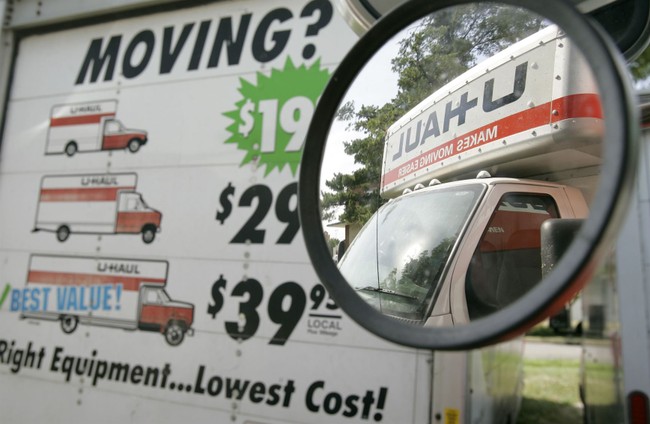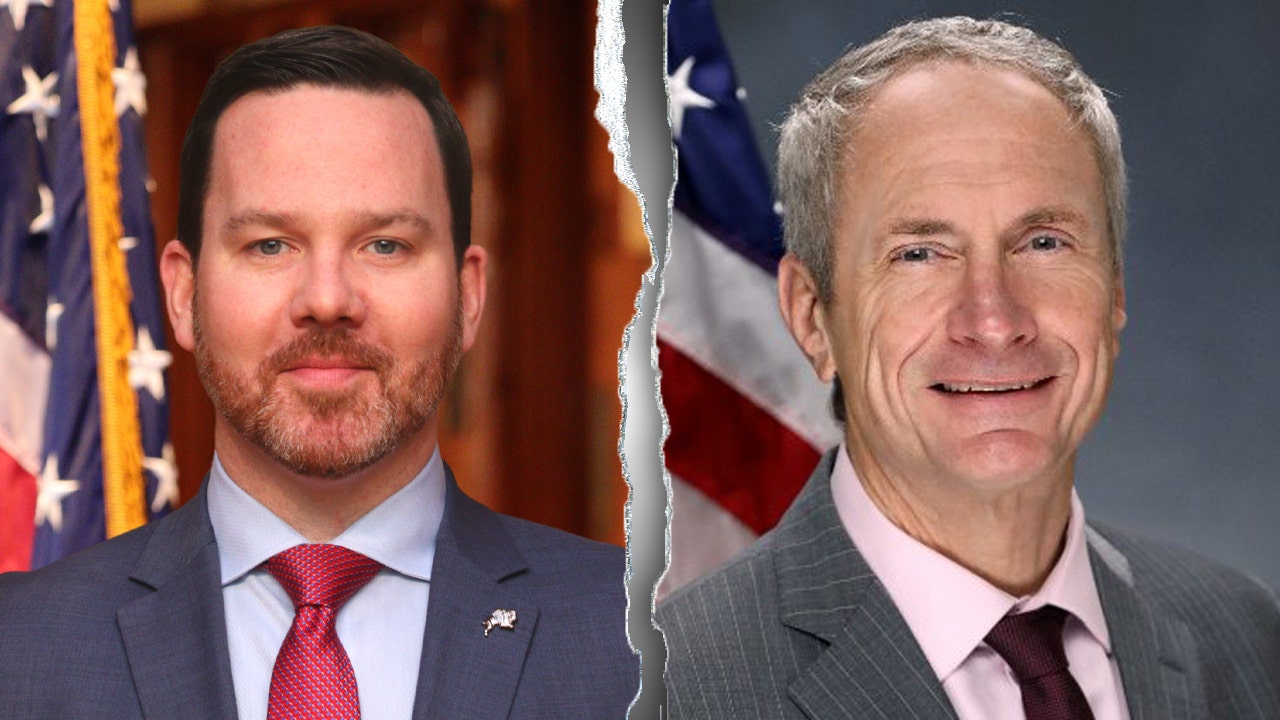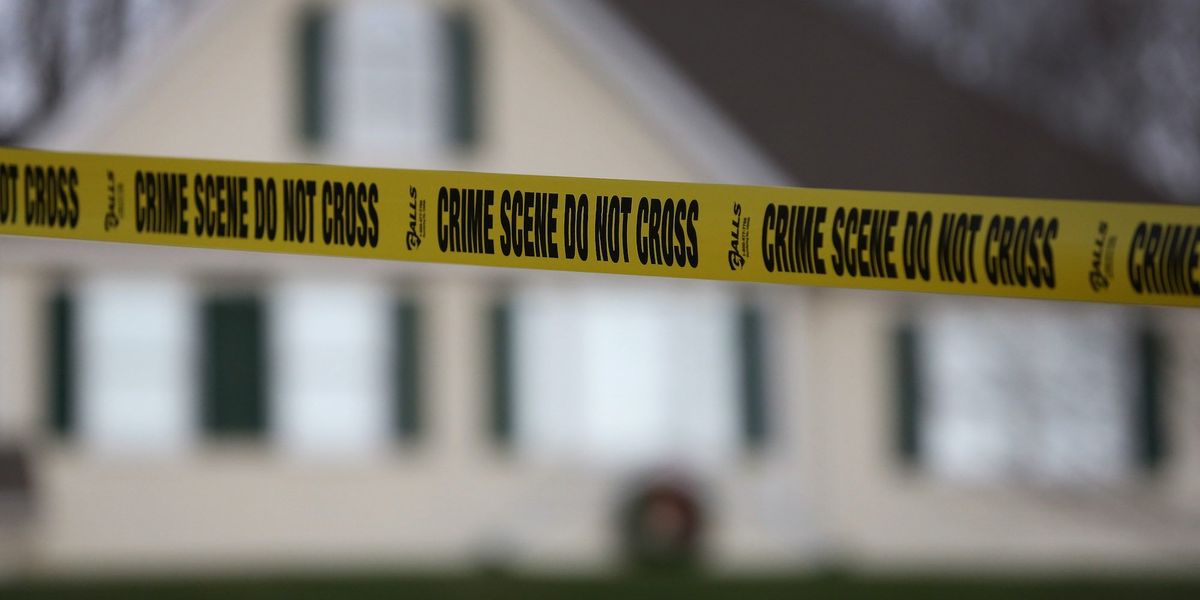Fact check: True. And false in another way, or at least incomplete.
The Los Angeles Times may not have gotten to the Dem Demo Dystopia story first; we’ve covered it here from other sources, for instance. However, it takes on more significance in light of the distillation of progressive Democrat governance in the catastrophic wildfires in Los Angeles. People had already begun fleeing California in droves over the last few years, with the Golden State holding U-Haul’s top exit position for five years running.
The LAT catches up to the political implications for progressives in this Great Migration, or better put, a national flight to sanity:
Texas and Florida are growing rapidly. California, Illinois and New York have been shrinking.
With America’s population shifting to the South, political influence is seeping from reliably Democratic states to areas controlled by Republicans. Coming out of a presidential election where they lost all seven swing states, Democrats are facing a demographic challenge that could reduce their path to winning the U.S. House of Representatives or the White House for the long term.
If current trends hold through the 2030 census, states that voted for Vice President Kamala Harris will lose around a dozen House seats — and Electoral College votes — to states that voted for President-elect Donald Trump. The Democratic path to 270 Electoral College votes, the minimum needed to win the presidency, will get much narrower.
“At the end of the day, Democrats have to be able to win in the South or compete in the South” if they want to control the levers of government, said Michael Li, senior counsel for the Democracy Program at New York University School of Law’s Brennan Center for Justice. “Otherwise, it’s a really uphill battle every time.”
This may become particularly acute in Southern California in the wake of the events of the past two weeks. Many of those who lost their homes in the wildfires may face years of effort to rebuild and return to their homes. If they were fortunate enough to retain their insurance, though, the payout would likely allow them to find much cheaper housing with similar amenities elsewhere — without the incompetent and malevolent progressive bureaucracy that made this disaster exponentially worse. Some of them may not be mobile enough to move away from income streams, but only a fool would fail to look at that option rather than wait until the end of the decade to have a home again.
One can bet that other Californians who aren’t impacted by the wildfires are thinking the same thing. For one, the destruction of housing on this scale will have the immediate effect of raising property values everywhere else in the Greater Los Angeles Area. Anyone who had been considering an exit to sanity but hadn’t yet pulled the trigger will realize that the financial incentives will never be better, while the political incentives for staying will never be worse. And for that matter, the same is true for the fiscal incentives in the long run, as Calfornia’s progressives will have to soak its residents even more to pay for the damage done by their incompetence as the bills run into the hundreds of billions of dollars.
Ironically, this will benefit California progressives in one sense, as their political opposition will leave the field to solidify Democrat control at the local and state level. But as the LAT and others have noticed, it will make California a lot less politically relevant at the national level. And given the fiscal woes in Sacramento, for which Newsom and the state legislature will need federal help to resolve since Democrats won’t stop spending money they don’t have, that will be very bad news for progressive California and the other coastal states in the grips of incompetent progressives. Which includes every state on the West Coast and every state north of the Carolinas on the East Coast.
What does that mean for progressives and these states in Congress and in presidential elections? A doom loop:
The Brennan Center projects that California will lose four seats and New York two in the 2030 census. Illinois, Minnesota, Oregon, Pennsylvania, Rhode Island and Wisconsin would lose one seat each. Except for Pennsylvania and Wisconsin, which are swing states, all of those states have consistently backed Democrats for president and sent Democratic majorities to the House.
No GOP strongholds are projected to lose seats.
Overall, the Brennan Center estimates a loss of 12 seats from blue states to red states. The conservative American Redistricting Project estimates it at 11 seats. Either way, the shift in 2030 — assuming it comes to pass — will mean a rightward shift in a near-evenly split of the House. It also portends a subtle rightward shift in the Senate, as a flood of disaffected conservatives flows out of California and New York to states they find more politically palatable. And of course, the Electoral College will begin to tilt significantly to the GOP if Democrats can’t rid themselves of the radical-progressive elite clique that currently controls their party.
So all of this is true enough, but it still doesn’t tell the whole story. The problem for progressives isn’t just that their conservative residents are migrating. As Gallup’s latest party affiliation data shows, Americans are also migrating to the GOP overall:
Americans’ political party preferences remained closely divided in 2024, with the Republican Party having a slight edge for the third consecutive year. Overall, 46% of Americans identified as Republicans or independents who leaned toward the Republican Party, compared with 45% who identified as Democrats or Democratic-leaning independents. Prior to 2022, Republicans only had a slight edge once before, in 1991.
Without leaners, a plurality of voters identify as independents, still at a record-high 43%. However, when Gallup adds in the leaners, Republicans have gotten the edge for the last three years. That makes the COVID pandemic look like an inflection point, and perhaps that is what finally broke the spell, as the destination states all have the same thing in common — either no lockdowns or very brief restrictions. Americans have a pretty good sense of freedom and dangers to it, and are flocking toward liberty and away from the bureaucrats and progressive incompetents that want to eliminate it. And that may well accelerate as progressives clamp down even harder on whoever is unfortunately unable to escape.
U-Haul had better invest some big money in their outbound California infrastructure, in other words.
Read the full article here




![Heroic Wife Locates Husband Lost in Avalanche Using Transceiver [WATCH] Heroic Wife Locates Husband Lost in Avalanche Using Transceiver [WATCH]](https://www.lifezette.com/wp-content/uploads/2025/01/2025.01.17-02.59-lifezette-678a7058902db.jpg)





